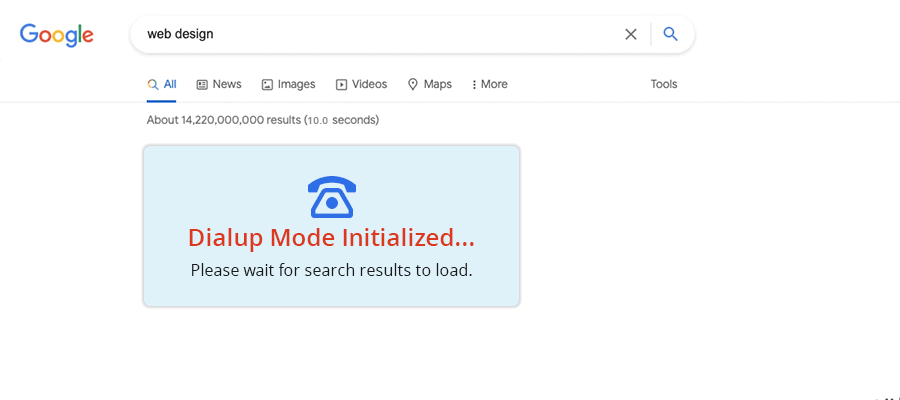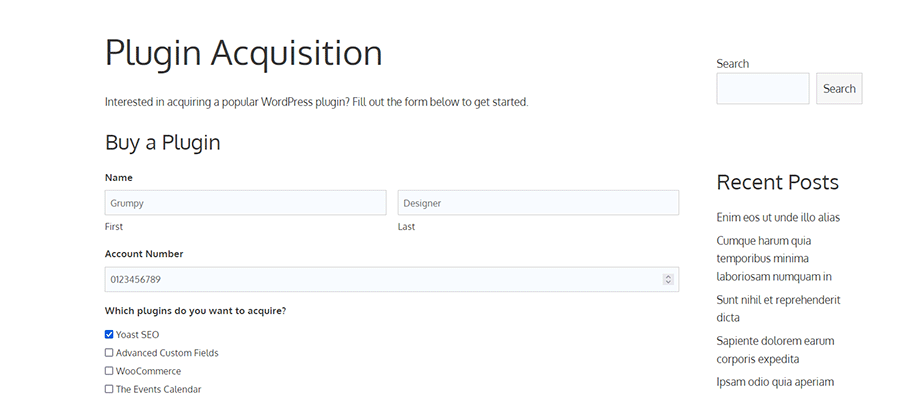So, how did 2021 work out for you? For this grumpy designer, the year felt quite similar to 2020. Uncertainty, along with both personal and professional challenges were around every corner. Let’s pat ourselves on the back for making it this far.
Now it’s time to straighten up and get ready for another go. 2022 promises to be an eventful year – particularly for web designers.
Do you know what that means? Predictions! But these aren’t the play-it-safe, incremental types of prognostications you’ll see elsewhere. If you’ve read my past columns, you know that I aim for the moon. And this year will be no different.
In fact, let’s see what I can get away with up the ante. The following are the boldest (notice the bold type) predictions for 2022 you’ll find anywhere.
Google’s AMP Fiasco Will Be Resolved
It turns out that Google’s vision for AMP (Accelerated Mobile Pages) didn’t pan out quite the way the omnipresent company had anticipated. Instead of becoming a fast-loading proponent of the “open web”, the framework generally frustrated both developers and publishers alike.
But the real kicker has been the antitrust allegations put forth. Unredacted documents seem to indicate that the real goal was to crush competing advertisers while providing very little benefit to participating websites. Even the perceived speed benefits have come under fire.
These are very serious assertions that will likely play out in a courtroom. But I predict that everyone involved will come to a reasonable solution. One that not only gives AMP’s users some peace of mind but will also result in some major concessions from Google.
How Will It End?
To make up for allegedly slowing down competitor’s ads, Google will introduce “dialup mode”, a universal 10-second delay when loading all of its web properties. Think those ads at the beginning of your favorite YouTube videos are annoying? Imagine waiting 10 seconds for search results to pop up. It’ll be like 1997 all over again.
As an extra measure, irrelevant (and potentially inappropriate) emoji will be interspersed throughout Google’s API documentation.

The Web and Metaverse Will Become BFFs
Facebook’s embrace of the metaverse was a shock to the system. It was so out of the blue that, for some reason, it felt as though they were trying to change the subject. Hmmm…🤔
But there’s certainly intrigue with this virtual world. Watching an early commercial from Meta (oh, that’s Facebook’s name now), one can’t help but want to become fully immersed.
As I see it, this is bigger than just a single social network. The metaverse belongs to all of us. And the web will be the perfect place to give people what they want.
Thus, web designers had better get ready. Our clients are going to start asking us to implement these “Meta®” features into their sites. And just think of the possibilities:
- A convenience store website where users can simulate the experience of paying for bottled water;
- A “virtual ATM” that allows banking customers to enter their secret PIN while friendly forest creatures look on;
- Online events that teleport attendees to the surface of Mars – complete with space dust;
This new MetaWeb (that’s what I’m calling it) will place users anywhere and everywhere at once. After the initial confusion wears off, we’ll be in for quite a ride.
Unintended Side-Effect
All avatars within the MetaWeb will be non-fungible tokens (NFTs). As such, losing your password will also mean a loss of identity. Oh well, it’s always nice to start fresh. Try doing that in the real world!

The Continued Gentrification of WordPress
Just like major cities around the world, WordPress has been dealing with gentrification. Out with the old way of doing things and in with the new. You can see it all around the community and ecosystem.
The shakeup started with the Gutenberg block editor, which is rapidly taking over various pieces of the content management system. It’s not just for editing posts. Indeed, it has now enveloped both the widgets screen and even the entire layout of a website via Full Site Editing (FSE).
Elsewhere, plugin and service provider acquisitions were everywhere. Many longtime community members sold off their products to larger firms, leaving users to wonder what it all means.
I don’t expect this to slow down in 2022. If anything, it’s going to ramp up to warp speed. Here are just a few major changes in store:
Competitor Site Editing (CSE)
Why stop at simply editing every aspect of your own website? That’s the idea behind CSE. The feature will provide site administrators access to the innards of a random competitor’s site. While any advantage you might gain is temporary, the ensuing game of tit-for-tat will be incredibly energizing.
The Plugin Acquisition Plugin
For those with a lot of cash or crypto in reserve, this will be a must-have plugin for 2022. And, unlike so many other areas of WordPress, the UI is dead simple.
First, connect your financial accounts via an API. Next, a checklist of WordPress plugins is displayed on the screen. Check off the plugins you want to own and…boom! They’re now in your portfolio.
It’s that easy. Just make sure to send out a reassuring press release to your new customers after each acquisition.

Final Prediction: Web Designers Will Adapt and Thrive
While the above predictions may be in jest, one thing is for certain. Web designers will continue to adapt to a changing landscape. That’s a safe bet in any year.
Thanks for reading. And here’s wishing you a happy, safe, and successful 2022!
The post The Grumpy Designer’s 2022 Preview appeared first on Speckyboy Design Magazine.
